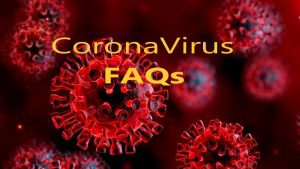An emergency rule promulgated in April by the Illinois Workers’ Compensation Commission gave certain classes of “essential” workers the ability to claim COVID-19 as an occupational disease vis-à-vis the ability to collect workers compensation. This is a change that every Illinois business should be aware of.
The commission withdrew the rule after a court challenge, but last month Governor J.B. Pritzker signed legislation amending the Illinois Workers’ Occupational Diseases Act (820 ILCS 310, codified as Public Act 0633) to say that a “COVID-19 first responder or front-line worker” has the rebuttable presumption of having contracted the disease due to hazards and exposures in the workplace.
The new law impacts all cases tried after June 5, based on a COVID-19 diagnosis that came between March 9 and December 31, 2020. The classes of workers covered include police, fire personnel, emergency medical technicians, paramedics, those considered first responders, all workers for healthcare providers, and corrections officers.
The law also covers those employed by “essential businesses and operations,” as defined by Pritzker’s Executive Order on March 20, if their line of work brings them into contact with members of the general public, or if they work in a location with at least 15 co-workers. That provision substantially expands the pool of those who can claim the rebuttable presumption, well beyond those typically thought of as at-risk of occupational disease.
Employers have a few potential rebuttals at their disposal. If the employee was either telecommuting and/or on leave from work for at least 14 consecutive days before they became sick from COVID-19, or if the employee contracted coronavirus from another known source, the employer should present evidence to that effect.
In addition, the employer should be able to show they had implemented the maximum possible industry-specific workplace health and safety measures around sanitation and social distancing, as defined by the latest guidance from the U.S. Centers for Disease Control and Prevention, or from the Illinois Department of Public Health. Alternatively, they can show that they combined administrative and engineering controls, as well as personal protective equipment, for at least 14 days before the employee fell ill.
In addition, employees who do not fall into one of the aforementioned categories do not gain the rebuttal presumption that they contracted COVID-19 in the workplace in the first place. That means the usual workers’ compensation process is followed, which means the employee must bear the burden of proving their infection arose “out of and in the course of employment.”
Based on the fact that COVID-19 is currently a common disease among the general public, meeting the causation standard under the Illinois Workers’ Occupational Diseases Act would be challenging. That act requires that it’s “apparent to the rational mind, upon consideration of all the circumstances, a causal connection between the connection between the conditions under which the work is performed and the occupational disease.”
For an employee to meet that standard, they likely would need to show the employer did not follow applicable guidelines, or that there had been an outbreak among their co-workers. For an employer, whether essential or not, following those guidelines—and documenting this as much as possible—not only protects the health of employees and customers. It also protect the workplace from a workers’ compensation claim.
 Chicago Business Attorney Blog
Chicago Business Attorney Blog


